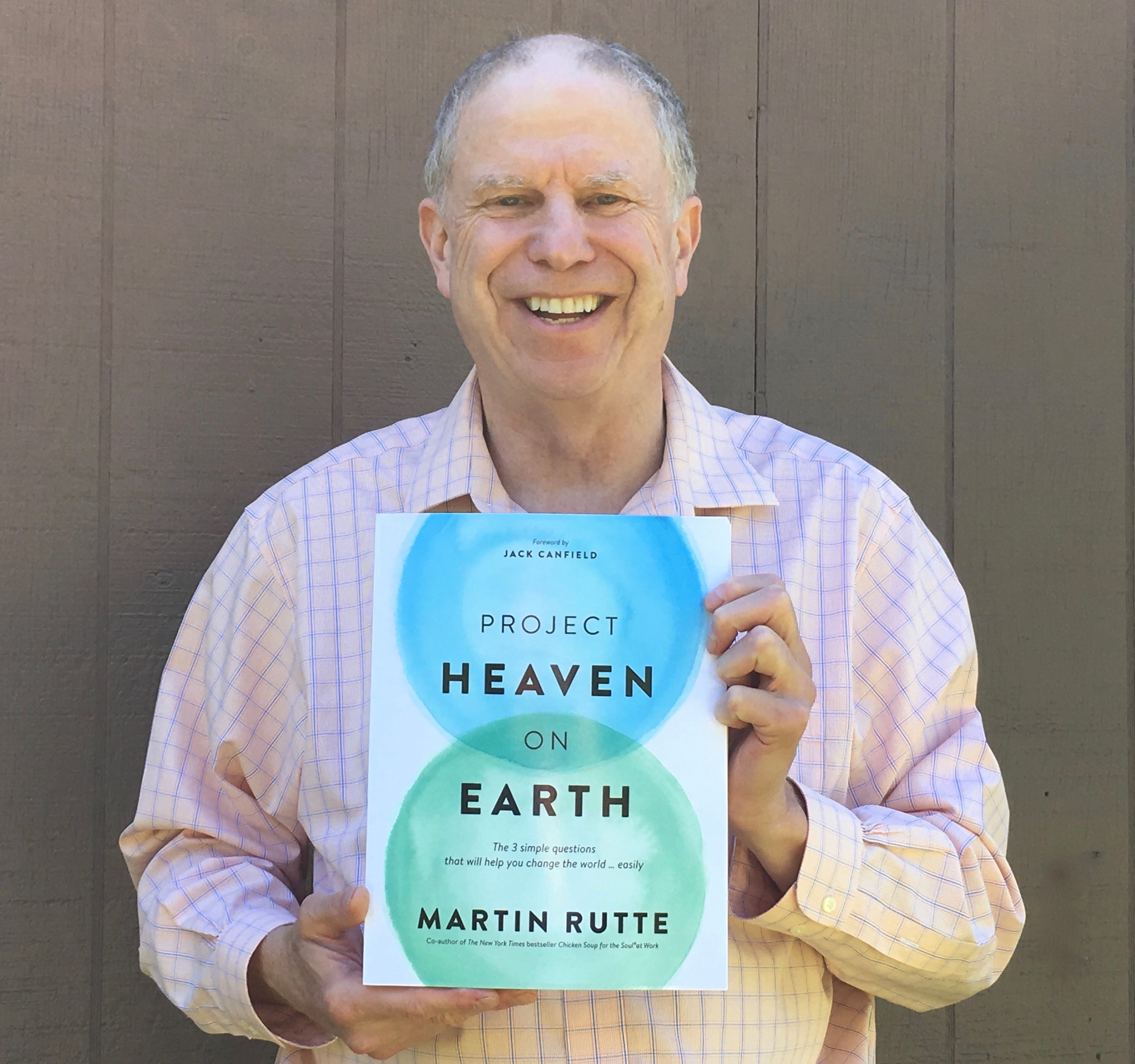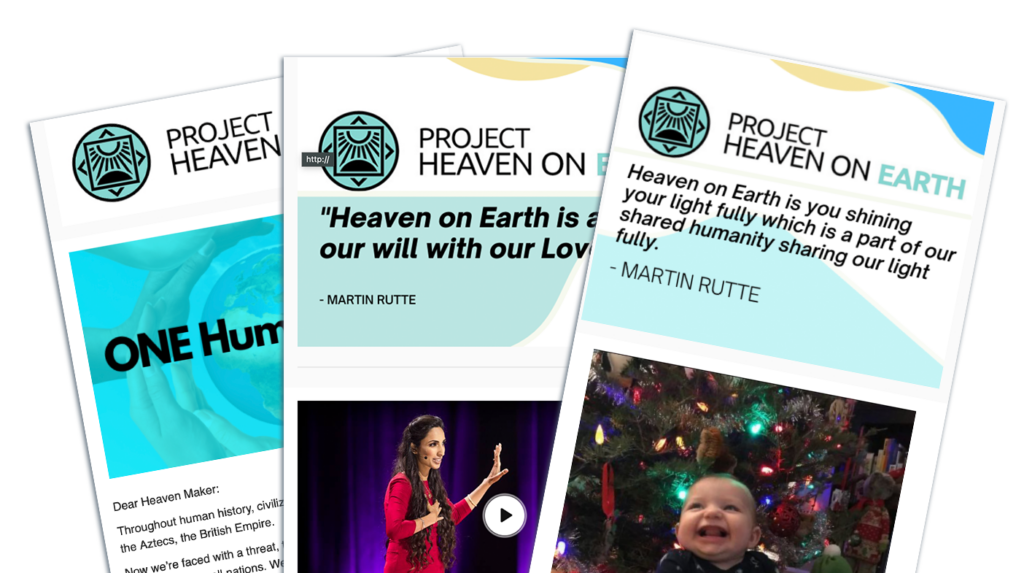Dear Heaven Maker:
As I began my journey of exploration into Heaven on Earth, I realized I knew what “Earth”
was, I knew what “on” was, but what about “Heaven”?
I certainly had my own ideas about Heaven — where it is, what it is. But rather than holding
on tightly to these ideas, like they were inside my closed fist, I thought it might be better if I
opened my hand and held those notions lightly in my palm so I could examine them more
easily and with greater clarity.
Heaven is usually thought of as the place where God and the angels live, and the place we
go to after death. The Oxford English Dictionary defines “Heaven” as a noun:
“The celestial abode of immortal beings;
the habitation of God and his angels, and of beatified spirits,
usually placed in the realms beyond the sky;
the state of the blessed hereafter.”
From ancient times Heaven was imagined as a canopy which, like a large sphere,
covered the Earth. It was immediately visible above us. The stars, the sun, the moon,
and the visible planets orbited within this sphere. Heaven was thought to exist from a couple
of inches above the Earth up to the canopy. In other words, Heaven was here, now.
Many philosophers and astrologers, including Aristotle and Ptolemy, taught that the
Earth and the surrounding canopy were the Universe. Then, in 1543, Nikolaus Copernicus
released his study announcing that the Earth circled the sun. This challenged the very idea
that Heaven surrounded the Earth. About fifty years later, Galileo, using the newly invented
telescope, confirmed that the Earth did indeed travel around the sun.
Copernicus and Galileo’s work pushed Heaven, which had been in the sky above, further out…beyond what we could see, beyond the telescope’s range. Much more importantly, Heaven had become not here, not now. It was no longer immediately available.
In my research on Heaven I discovered that while Heaven is a noun there is an another way to describe it. The Oxford English Dictionary also defines “Heaven” as a verb:
“To make heavenly in character,
to transport or transform into heaven;
also, to bless with heaven, beatify, render supremely happy.”
To be more precise, Heaven is a transitive verb (a transitive verb requires a direct object
— a noun, pronoun, or noun phrase — to complete a sentence’s meaning). For instance, “I heaven my marriage.” “I heaven this day.” “I heaven my work.”
We have to Heaven someone or something and by doing that we transform our relationship into a heavenly one. We transform our relationship with problems into a heavenly one. We transform our relationship with life itself into a heavenly one.
As a verb, to Heaven, brings Heaven back into the here and now.
As Whitney Roberson, a friend and Episcopal priest, says, “We can go about Heavening Earth.”
Action Step: Heaven Earth today.
Please share this blog with one or two people.


 Martin Rutte
Martin Rutte




